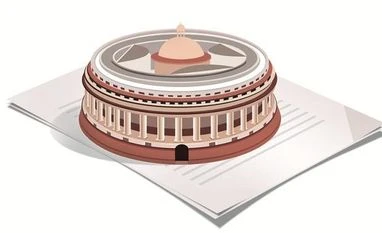This means that the FC will submit its report to the government on November 30 this year, rather than October 31.
“The Cabinet chaired by Prime Minister Narendra Modi has approved the proposed amendment to enable 15th Finance Commission to address serious concerns regarding the allocation of adequate, secure and non-lapsable funds for defence and internal security of India,” said a statement after the Cabinet decision.
“Under the Terms of Reference of the Commission, it is proposed to ensure an assured allocation of resources towards defence and internal security imperatives. The amendment provides, which the 15th FC shall also examine if a separate mechanism for funding of defence and internal security ought to be set up and if so how such a mechanism could be operationalised,” it said.
An official told Business Standard that this decision was informed to the 15th FC recently, and was in line with the ruling Bharatiya Janata Party’s stated commitment in its election manifesto to provide further resources for defence and internal security, if elected back to power. The official said the FC could examine ways to provide additional funding for defence, paramilitary and police forces.
The FFC’s recommendations will be in force from April 1, 2020 for a five-year period.
The only ToRs mandated by the Constitution for the Finance Commission are to recommend the distribution between the Union and the states of the net proceeds of divisible pool of taxes and the allocation between states, the principles, which should govern the grants-in-aid of the revenues of the states out of the consolidated fund of India and the measures needed to augment the funds of a state to supplement the resources of panchayats and urban local bodies.
The other ToR’s, including the one included after the Cabinet decision, may or may not be examined by the FC. It could even examine issues out of the ToRs.
For example, the FC may recommend giving greater financial freedom and powers to panchayats and urban local bodies, as reported earlier. To that effect, it may suggest an increase in property tax rates around the country.
It is also likely to bring back performance-based incentives for states, wherein they will be assessed on certain parameters. Performance-based incentives were recommended by the 13th FC but omitted by the 14th.
Some stated parameters, however, have been opposed by seven states and union territories, including how well states implement the flagship schemes of the central government, and control or lack of it in incurring expenditure on populist measures, progress made through direct benefit transfers and in promoting ease of doing business.
While some of the more controversial parameters like those on populist schemes and implementing the Centre’s schemes may be left out, the 15th FC is likely to advise the Centre to reward states based on other parameters, such as effectiveness of capital spending, efforts made by them in deepening goods and service taxes, progress in increasing revenues, progress made in achieving replacement rate of population growth, and achievements in infrastructure and social sector schemes, said officials aware of the work going on in the commission.
To read the full story, Subscribe Now at just Rs 249 a month
Already a subscriber? Log in
Subscribe To BS Premium
₹249
Renews automatically
₹1699₹1999
Opt for auto renewal and save Rs. 300 Renews automatically
₹1999
What you get on BS Premium?
-
Unlock 30+ premium stories daily hand-picked by our editors, across devices on browser and app.
-
Pick your 5 favourite companies, get a daily email with all news updates on them.
Full access to our intuitive epaper - clip, save, share articles from any device; newspaper archives from 2006.
Preferential invites to Business Standard events.
Curated newsletters on markets, personal finance, policy & politics, start-ups, technology, and more.
Need More Information - write to us at assist@bsmail.in
)